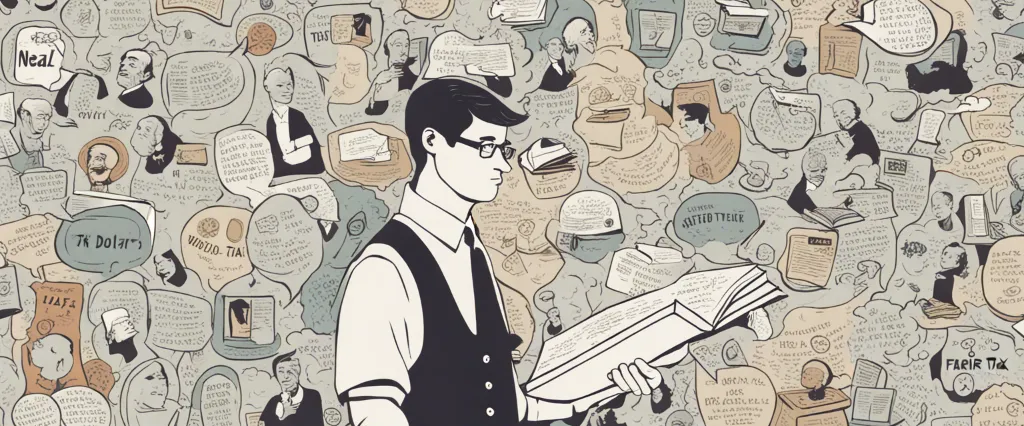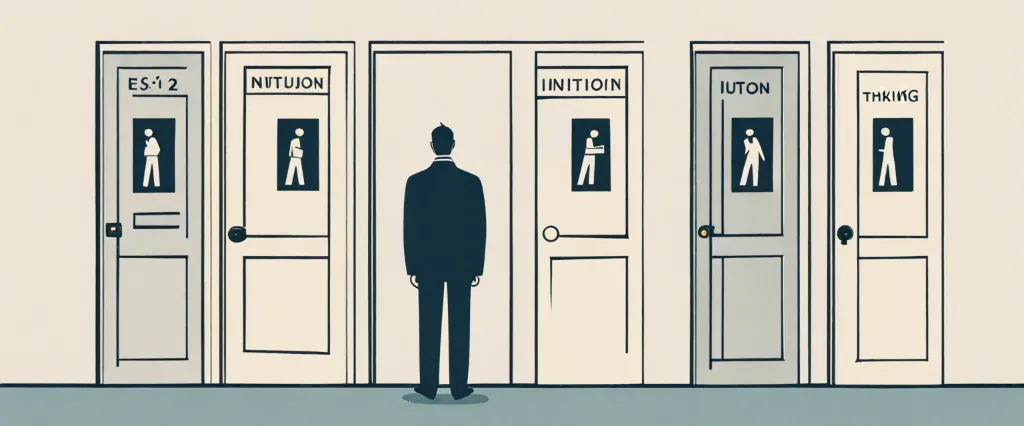
In the realm of personal finance and taxation, two books stand out as influential guides that have sparked widespread conversations and opinions among readers. David Chilton’s “The Wealthy Barber” and Neal Boortz’s “The FairTax Book” offer unique perspectives on managing wealth, structuring taxes, and achieving financial independence. While both authors tackle the subject matter with passion and expertise, their approaches to personal finance and tax reform diverge, presenting readers with contrasting viewpoints and potential solutions.
“The Wealthy Barber” by David Chilton takes readers on a journey through the fictional town of “Port Perry,” where a barber named Roy shares his timeless secrets to financial success with three eager young friends. Chilton brilliantly weaves together the essence of his wisdom into entertaining anecdotes, making complex financial concepts accessible to readers of all backgrounds. As readers delve into “The Wealthy Barber,” they discover a wealth of practical advice on budgeting, saving, debt management, and investment strategies, all tailored to help individuals build a secure financial future.
On the other hand, in “The FairTax Book,” co-authored by Neal Boortz and Congressman John Linder, readers are presented with a bold and provocative blueprint for a complete overhaul of the existing tax system in the United States. Boortz, a renowned talk radio host, and Linder, a prominent Republican Congressman, advocate for the replacement of the current income tax system with a national consumption tax, known as the FairTax. Through an engaging narrative, they argue that the FairTax would bring simplicity, transparency, and economic prosperity. Boortz and Linder present a persuasive case, highlighting the potential benefits of eliminating personal and corporate income taxes, transforming the way Americans pay for government services, and stimulating economic growth.
While “The Wealthy Barber” primarily focuses on personal financial management, “The FairTax Book” ventures into the realm of tax policy and macroeconomics, proposing a radical reformation of the tax structure. As we navigate these two books, we will explore the contrasting nuances of their philosophies, dissect the merits and potential drawbacks of their proposals, and ultimately analyze the impact each book may have on individuals, society, and the broader economy.
Through this comparative study, we will gain valuable insight into the complexities of personal finance and taxation, enabling readers to critically evaluate the strengths and weaknesses of these influential perspectives. Let us embark on this journey of discovery, as we explore the realms of wealth accumulation and tax reform through the eyes of David Chilton and Neal Boortz, uncovering invaluable lessons and challenging our preconceived notions along the way.
Brief Summary of Two Books
The Wealthy Barber by David Chilton
“The Wealthy Barber” is a personal finance book written by David Chilton that provides insights and practical advice on how to achieve financial independence. The key premise of the book is that by following simple financial principles consistently over time, everyone has the potential to become financially secure.
The story is set in a small town where three individuals, Roy, Tom, and Mary, are in desperate need of financial guidance. They approach their local barber, Roy, who surprises them with his wisdom and knowledge about personal finance. Through a series of regular visits to the barbershop, Roy imparts sound financial principles to his three friends.
The book covers various topics such as savings, budgeting, debt management, insurance, and investing. It emphasizes the importance of living below one’s means, establishing an emergency fund, and developing a disciplined savings habit. It also highlights the significance of having proper insurance coverage and making informed investment decisions.
Chilton shares practical advice reinforced by simple stories and analogies, making complex financial concepts easily understandable. Alongside financial literacy, the book emphasizes the importance of setting financial goals, both short-term and long-term.
Overall, “The Wealthy Barber” serves as a comprehensive guide to personal finance, giving readers the tools and knowledge they need to make informed decisions about their finances. By following the principles outlined in the book, individuals can work towards achieving financial security and ultimately living a more stress-free and comfortable life.
The FairTax Book by Neal Boortz
“The FairTax Book” by Neal Boortz and John Linder explores the concept of a revolutionary tax reform called the FairTax. The authors argue that the current income tax system in the United States is complex, unfair, and inefficient, and propose the FairTax as a simpler and more transparent alternative.
The book begins by explaining the problems associated with the current tax system, such as its convoluted nature, high compliance costs, and the inequitable burden it places on lower-income individuals. Boortz and Linder then introduce the FairTax, which is essentially a national sales tax that would replace the income tax system. They outline the key features of the FairTax, which include eliminating both personal and corporate income taxes, as well as most deductions, exemptions, and credits.
The authors argue that the FairTax would be progressive, as it would provide a prebate to all households to ensure that necessities are not taxed on basic consumption. They also address common criticisms of the FairTax, such as issues related to tax evasion and the underground economy. Boortz and Linder suggest various ways to prevent these problems from arising and maintain the integrity of the tax system.
Throughout the book, the authors emphasize the economic benefits they believe the FairTax would bring, such as increased savings and investment, economic growth, job creation, and enhanced international competitiveness. They also discuss the potential positive societal impact of the FairTax, including the elimination of the Internal Revenue Service (IRS) and the reduction of government intrusion into individuals’ financial lives.
While acknowledging that implementing such a significant tax reform would face challenges, Boortz and Linder argue that the FairTax is both desirable and feasible. They present strategic plans for transitioning from the current system to the FairTax and address concerns related to its implementation and political viability.
In summary, “The FairTax Book” presents a comprehensive argument in favor of replacing the current income tax system in the United States with a national sales tax known as the FairTax. The authors advocate for a simpler, more equitable, and transparent tax structure, highlighting the potential economic and societal benefits it could bring.
Comparison between Two Books

Similarities in Financial Documentary
The Wealthy Barber by David Chilton and The FairTax Book by Neal Boortz may not be strictly classified as financial documentaries, as they are primarily written books rather than visual documentaries. However, both books delve into various aspects of personal finance and offer guidance on managing money effectively. Here are some similarities between these two books:
1. Practical advice: Both books provide practical advice on financial matters. Whether it’s saving, investing, or budgeting, they offer practical tips and strategies that readers can apply in their own lives to improve their financial situation.
2. Accessibility: The authors strive to make complex financial concepts accessible to a wider audience. They break down complicated ideas into simpler terms, making it easier for readers to understand and implement the advice given.
3. Real-life examples: Both books use real-life examples and anecdotes to illustrate their points. By sharing relatable stories, the authors make the information more engaging and relatable, helping readers connect with the ideas being discussed.
4. Engaging writing style: Both Chilton and Boortz utilize a conversational and engaging writing style. They avoid excessive jargon and use humor and wit to maintain reader interest throughout the book.
5. Holistic approach: Both books take a holistic approach to personal finance. They cover various aspects such as budgeting, saving, debt management, retirement planning, and investing, thereby providing a comprehensive understanding of managing finances.
6. Challenging traditional thinking: Both Chilton and Boortz challenge some established financial norms and question conventional wisdom. They present alternative ideas and encourage readers to think critically about their financial decisions.
While The Wealthy Barber focuses more on personal finance and wealth accumulation, The FairTax Book delves into the taxation system and proposes an alternative tax structure. Despite differing topics, there are still similarities in the way both books aim to educate and guide readers in their financial journeys.
Divergences in Financial Documentary
The Wealthy Barber by David Chilton and The FairTax Book by Neal Boortz are both influential financial books aiming to provide readers with valuable insights and guidance related to money management. However, these books take different approaches and diverge in certain aspects when it comes to their perspectives on financial matters.
1. Main Focus:
– The Wealthy Barber: David Chilton’s book primarily focuses on personal finance and aims to educate readers on the importance of saving, budgeting, investing, and planning for the future. The key concept revolves around the advice offered by a fictional character “The Wealthy Barber,” who imparts timeless financial wisdom.
– The FairTax Book: Neal Boortz’s book, on the other hand, concentrates on advocating for tax reform and presents the concept of the FairTax. It primarily centers around the idea of replacing income taxes with a national sales tax.
2. Writing Style:
– The Wealthy Barber: Chilton adopts a storytelling approach by interweaving personal anecdotes through the fictional character’s narrative. This makes the book more engaging and relatable, allowing readers to understand financial concepts in an easy-to-understand manner.
– The FairTax Book: Boortz’s writing style is more persuasive and argumentative as he presents his case for implementing the FairTax system. The book contains statistical data, illustrations, and explanations of the current tax structure, making it more technical in its approach.
3. Financial Advice:
– The Wealthy Barber: Chilton emphasizes the significance of living within one’s means, paying oneself first, and making sound investment decisions. He promotes the idea of regular savings and compounding returns over time, stressing the importance of long-term financial planning while also highlighting the potential risks involved in investing.
– The FairTax Book: While Boortz does touch on some personal finance advice, such as debt management and savings, his primary focus lies in advocating for the FairTax system as a solution for reforming the tax system. The book delves into the intricacies of the current tax structure and presents the FairTax as a more straightforward and transparent alternative.
4. Subject Matter:
– The Wealthy Barber: Chilton covers a wide range of personal finance topics, including budgeting, mortgages, insurance, wills, and retirement planning. The book aims to provide comprehensive guidance on various aspects of financial well-being, targeting individuals looking for a holistic approach to money management.
– The FairTax Book: Boortz’s book primarily focuses on the FairTax proposal, discussing its potential benefits, economic impact, and how it could potentially address issues like tax evasion and complexity. The subject matter revolves around tax policy and reform rather than offering extensive advice on personal finance topics.
In summary, while both The Wealthy Barber and The FairTax Book provide advice and guidance regarding financial matters, the main divergence between these books lies in their focus, writing style, and subject matter. The Wealthy Barber concentrates on personal finance, employing storytelling to convey its messages, while The FairTax Book centers around tax reform, presenting a persuasive argument for the FairTax system.

Conclusion
It ultimately depends on the individual’s personal interests and goals. Here’s a brief overview of each book to help you make a decision:
1. “The Wealthy Barber” by David Chilton: This book is a personal finance classic that focuses on the importance of saving and investing for financial security. It offers practical advice and easy-to-understand concepts regarding budgeting, debt management, and long-term wealth building. Chilton uses storytelling to engage readers and make complex financial topics more accessible.
2. “The FairTax Book” by Neal Boortz: This book proposes a radical change in the US tax system, suggesting a consumption tax instead of an income tax. The FairTax system aims to eliminate income taxes, including corporate taxes, and replace them with a national sales tax. Boortz argues that this would simplify the tax system, promote economic growth, and benefit the middle class while reducing inequality.
If you’re interested in personal finance and improving your financial well-being, “The Wealthy Barber” may be a more suitable choice. It provides valuable advice for managing your money effectively and achieving long-term financial stability. However, if you are interested in tax reform and exploring alternative tax systems, “The FairTax Book” may be a more compelling option.


